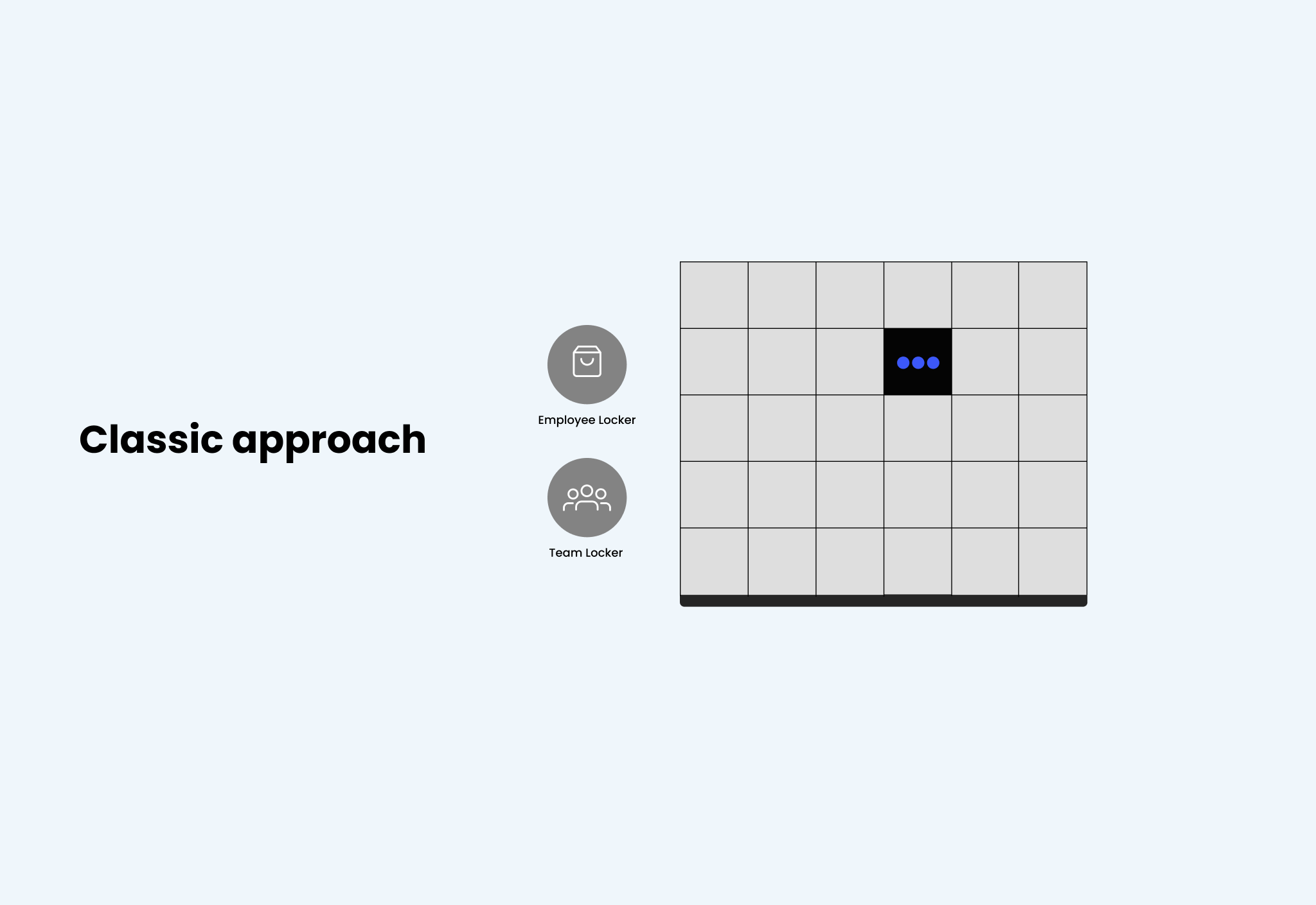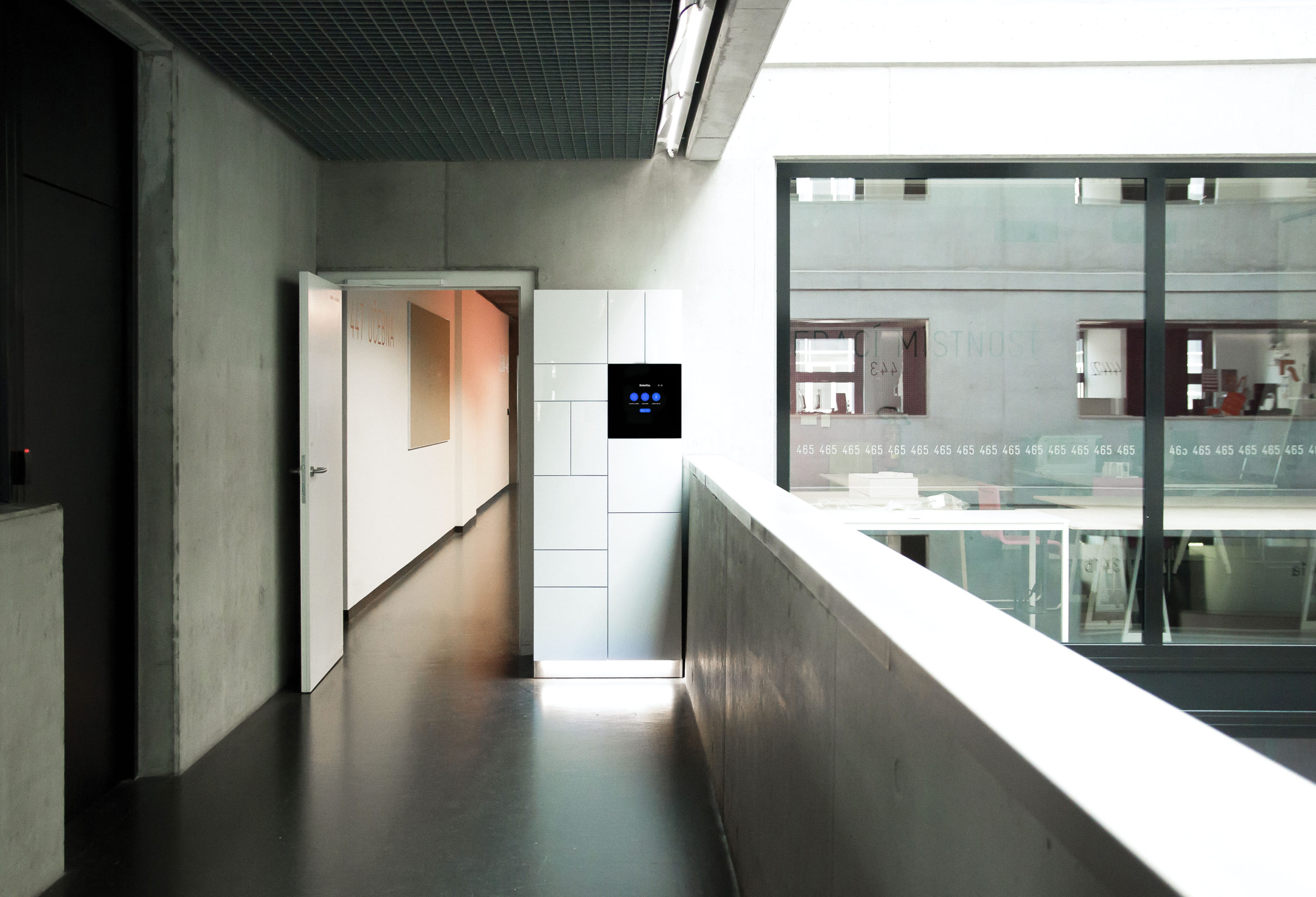When it comes to a smart locker, by 2023 one thing should be clear: its function must go well beyond personal storage. The software-powered locker must react to company needs as they emerge. In this article, we are going to explain at least 7 possible use cases modern companies can solve by using a smart locker.
What is a smart locker? The traditional definition of a smart locker is a storage and distribution system with integrated computer and sensor networks, that differs from a traditional locker openable with a keycode or keys, by better management for facility management and improved service for the end users.
“That might have been enough in 2016. For us, the definition is the one that highlights the software-first approach, seamless integration with third-party systems and most importantly flexibility of how you use it in day-to-day operations and how you use it in the ever-changing conditions,” says the CEO and co-founder of Blocks Bartolomej Holubar.
What it means is that a truly smart locker should empower employees to use them in various scenarios and adapt to their needs, rather than the other way around.

However, when people think about lockers, they usually think of two regimes: either personal storage or parcel delivery, never combined. But when powered with the right software, one locker can meet a vast number of use cases at the same time. The majority of the functions will fall into two main categories: storing and sharing. Let’s break it down.
Desk-sharing can only come with smart lockers
Desk-sharing is an increasingly common practice, as a result of post-COVID office reality: hybrid working schedule and employees visiting the office based on their desires or company-defined schedule. But how do you let workers store their personal and work-related belongings? Standard lockers or pedestals that are employee-dedicated and key-dependant are simply a no-go in this new reality.
Since not all employees visit the office on the same days, smart lockers provide optimum utilization, with fewer lockers needed. “From our experience, it can be 15-30% fewer lockers which also translates to more floorspace that can be used for a different purpose,” says Edgar Cinegr, Head of Business Development at Blocks. And unlike lockers that are opened with keys or cards (think card or key replacement), smart lockers do not require any special maintenance.
While smart locker initial investment is usually higher when compared to traditional lockers, all of the operational savings erase the price difference within a few months.
Meeting the clean desk policy and ISO certification requirements
Clean desk policy is a standard in public, corporate and financial institutions of all sizes for decades. As the COVID-19 pandemic hit and the office suddenly became something we usually visit less than 5 days a week, a personal desk is now something increasingly rare, while the clean desk policy sees the opposite trend.
A smart locker lets employees store their belongings and helps keep the workplace organized and clean. With documents stored and laptops inaccessible, it also makes the workplace safe – for example, ISO 27001 indeed requires assets to be locked away when not required.
Better management and loss prevention
Employees lost or forget keys or keycodes far too often – according to our data about 5% of all lockers every month are affected – and costs associated with each replacement (think lock exchange, staff dealing with the situation) can be anything between EUR 20 and EUR 50. That is far from being manageable or smart. On the other hand, smart lockers like Blocks provide easy user management; assigning and removing users is a matter of one click.
Imagine your team needs to store and share items such as documents or samples. How do you manage that with classic lockers? How do you know what is where, especially if teammates visit the workplace on different days?
With easy-to-understand UI, Blocks don’t require comprehensive onboarding as the team usage is as simple as ABC.
Imagine your team needs to store and share items such as documents, samples, or price lists. How do you manage that with classic lockers? How do you know what is where, especially if teammates visit the workplace on different days?
With easy-to-understand UI, Blocks don’t require comprehensive onboarding as the team usage is as simple as ABC.
The receptionist is no longer a parcel manager
The growing e-commerce segment and shipping companies that usually don’t deliver at the exact time drive more packages to the reception. The backstory is symptomatic: It starts to look messy, leaving a negative impression on the visitors and takes much of the receptionist’s time who in turn becomes a parcel manager, as companies learn the hard way. Smart lockers enable receptionists to focus on the core of their responsibilities: which is creating a welcoming experience for the guests and helping with any issues they might have.
Maintaining productivity
“We will deliver your package between 8-18.” Sounds like the definition of a modern-day prisoner, right? In the age of flexibility and one-click digital access, this is odd, archaic and unnecessary. With smart lockers, people can simply pick up the package when it is suitable for their daily schedule. For the employees that effectively removes the barrier of not visiting the office, in order to wait for the courier all day long, as the infamous joke goes.
Smart lockers can prevent employee distraction, too. Distraction might sound trivial but it has a profound impact on productivity and importantly, a blow to business costs, too – the average worker wastes 60 hours every month due to distractions.
We use Blocks as a tool for safe delivery management and sharing between colleagues. It perfectly addresses the e-commerce boom and flexible working environment needs of the new normal.
— Martina Eke Steklova, Senior Property Specialist at O2
Helping companies log all parcels
Personal delivery is one thing but at the same time, companies need an automated mailroom system that logs, receives, and stores all work-related letters and parcels that get delivered to the office. Companies like O2 need a mailroom solution that is fully integrated into their internal ecosystem, easily managed and updated regularly. Besides that, Blocks technology also supports notifications and reminders sent automatically to the receiver, be it an SMS, email or Microsoft Teams and Slack.

Laptops, displays, iPads, mouses and other IT equipment. How does your IT or HR department share and receive if you are a 50+ company? Do they contact each and every employee when their equipment is ready? Do they personally handle each and every worker when they show up? Do you track how much time it takes and what it means to business costs and productivity?
With smart lockers, that asset management process gets fully automated and recorded. End user support teams save time and gain independence and convenience in unmanned handover.
Employees and suppliers need to share different items, such as documents, agreements or keys. In the hybrid working reality, that can be harder than you imagine – how do you meet when everybody is working on different days, and the routine is non-existent? How do you track who has what at what time? With Blocks, smart lockers for the office, employees can share items asynchronously, and pick them up 24/7, while they are safe and sound and GDPR and clean-desk policy proofed.
Blocks come with readily-available integrations to established corporate tools such as Microsoft Entra ID (previously named) Azure AD or Jira and favourite company messaging tools such as Microsoft Teams and Slack. That means automated notifications when a new item is shared.
Smart workplace lockers can provide on-demand access to things employees want and need, from car keys to projectors or sports amenities – and beyond.
In this borrow and return scheme, workers get much-needed flexibility, while employers gain a track record of where the item is at every single moment which is especially important for costlier items.
Now, we tried to build an exhaustive list of the functions that a smart workplace locker is able to comprehend, but indeed, the list is not complete as new functionality emerges following the new workplace and work trends. Hence, the crucial asset of a truly smart locker is being able to adapt to company needs in real time.
“What smart locker companies usually say is that they are capable of anything from parcel delivery to storing and sharing. Yes – however there is this huge but. What usually falls between the cracks and what facility managers usually realize only too late is that they need to replace both locks and the electronics system if they wish to swap functions,” claims Edgar Cinegr, Head of Business Development at Blocks.

If your company deals with any of the challenges mentioned, schedule a non-binding consultation with us. Our experts will help with understanding your needs to the root and will design a made-to-measure solution to cut your costs.
How smart lockers benefit your workplace:
